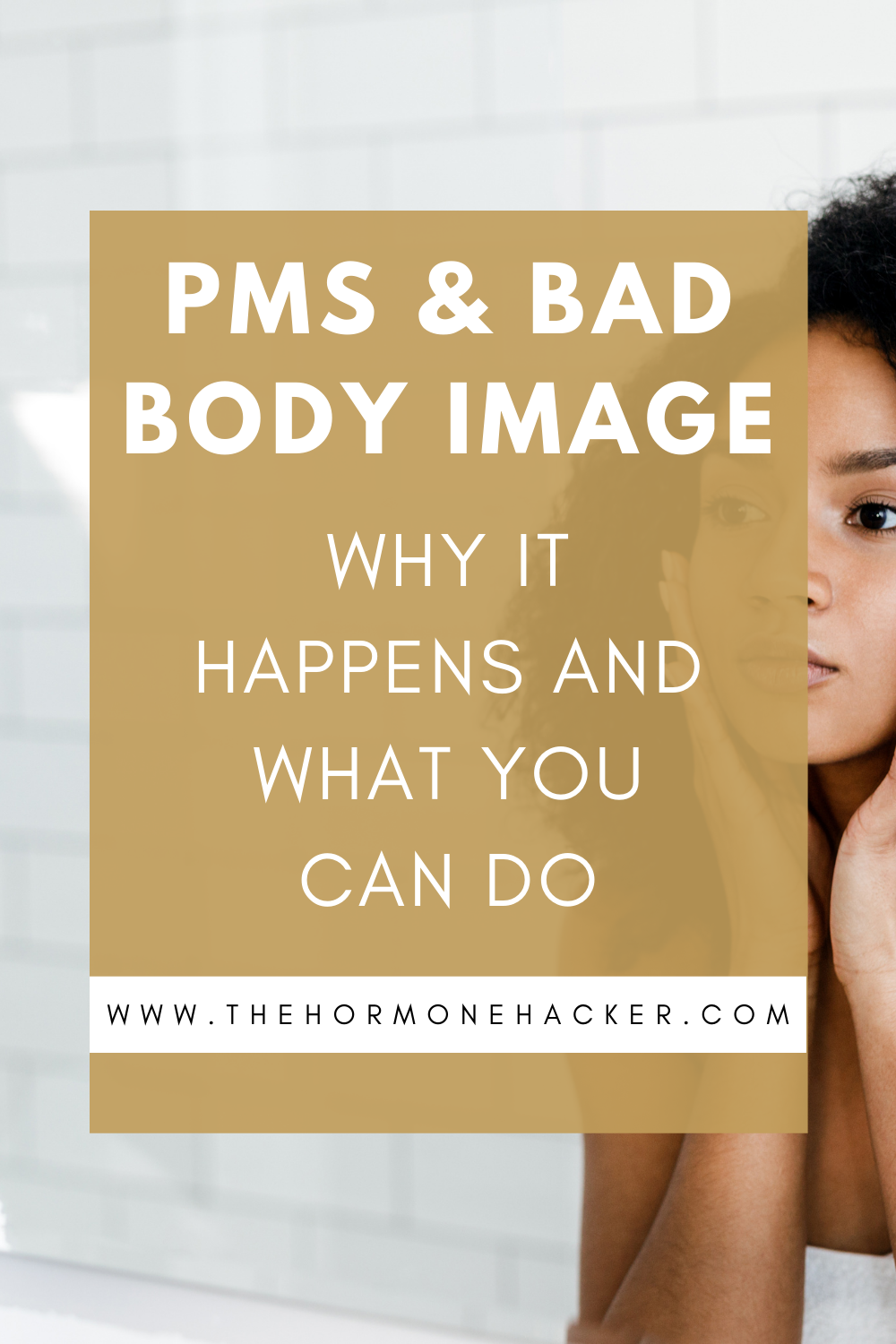We all know that poor body image runs rampant in our society. Most people deal with bad body image days or insecurity at least occasionally! But for menstruators, there could be a sneaky pattern that many might not notice.
Poor body image can be a devastating PMS symptom, but most people don't talk about it.
Let’s discuss why this happens and what you can do when you find yourself struggling premenstrually.
Serotonin and PMS
Serotonin (your feel-good neurotransmitter/hormone double punch) is a key player in your sense of well-being and happiness. Low levels of serotonin are linked to depression and anxiety.
Your serotonin levels naturally dip the week before your period.
If you’re sensitive to this dip, you might become very dissatisfied with parts of your life (like your body or sense of self) like clockwork every cycle.
Feeling like this can fuel extreme habits, like food restriction, excessive exercise, giving up on projects, spending money, picking fights… But all these extreme behaviors just make things worse across your life AND your entire menstrual cycle.
Some people struggle with premenstrual body dysmorphia, when they look in the mirror and literally see their body look different than it did before (even if it looks the same to everyone else).
Sadly, the National Eating Disorder Association found that “9 out of 10 women say they will actually not eat and risk putting their health at stake when they feel bad about their body image.”
Not eating enough wreaks total havoc on your hormones and leaves you feeling especially awful! But, it’s hard to ignore the critic in your head when you’re feeling low, especially when you don’t connect the dots to where you are in your cycle.
Tracking your cycle can help you discover the unique patterns over the weeks so you can prepare for upcoming symptoms (not to mention use each week to your advantage).
We need to talk about this common yet hush-hush PMS symptom.
If we all acknowledge the fact that cyclical body image issues are a possibility for all menstruators, then it could improve the PMS experience for the greater good.
Talking about it removes the taboo.
We can ask for help when we need it (from friends or from professionals).
It keeps us in tune with our mind-body connection (and feel down-to-earth).
We stop blaming ourselves and falling into damaging habits.
It encourages us to track our cycles-- which improves all areas of health.
Do you feel compulsive or harmful thoughts during the week before your period?
If so, remind yourself that this is your body’s reaction to changes in hormone levels. Simply being mindful of where you are in your cycle can be a grounding reminder that what you’re seeing or feeling isn’t necessarily true.
Self-care is paramount when it comes to your premenstrual phase.
How to hack your happy chemicals!
All of us-- whether we experience poor body image or not-- deserve to feel happy and well throughout our entire cycles. Save these tips for hacking your happy chemicals when you need them most.
Serotonin (happy mood chemical):
listen to music
go for a hike, paddle or swim
get some sunshine
meditate
sit in nature
Dopamine (reward neurotransmitter):
complete a task or project (you’re wired for that in the luteal phase!)
make a great meal
celebrate something you accomplished earlier in your cycle
treat yourself to a nice self-care activity
Oxytocin (the love hormone):
cuddle with a pet or child
hug your partner or hold hands
have sex
give others sincere compliments
Endorphins (natural painkillers):
laughter therapy
watch something funny
exercise
find a challenge you can overcome
Trust Your Gut
BTW-- 95% of your serotonin is produced in your GUT. (No wonder they call the gut your second brain.)
So, if you especially struggle with body image, you might need to work on your gut health.
Do you experience bad body image days? What helps you deal?
Sources:
https://pubmed.ncbi.nlm.nih.gov/7833960/
https://academic.oup.com/jcem/article/82/4/1220/2866239
https://www.nationaleatingdisorders.org/statistics-research-eating-disorders

